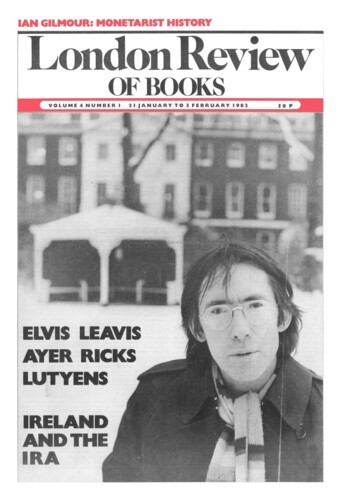Against Theory
Gerald Graff, 21 January 1982
In the noisy polemical atmosphere of contemporary literary criticism, Geoffrey Strickland’s quiet ‘thoughts on how we read’ may not have got a fair hearing. His book is an answer to the philosophical critics who have lately been questioning the assumption that literary and other texts have determinate meanings, meanings more or less under the control of their authors. Not that doubts about whether authors’ intentions need be involved in the interpretation of texts are new among literary theorists. But recent theorists go much further than the enemies of ‘the intentional fallacy’ of several decades ago by stating or hinting that the concepts of author, intention and determinate meaning are not only philosophically unjustified but politically retrograde. These concepts are said to express a self-glorifying myth of the sovereign Western ego, a myth that enables professional élites to repress disruptive textual – which is to say, psychological and social – forces. Accordingly, these critics conceive of texts, not as communications by individual human beings to other human beings, but as ‘discursive formations’ produced, reproduced and dissolved by the contending forces of power that play across and through them. It may be that these critics can’t help acknowledging the intentions of authors in the very process of demonstrating how their intentions are inevitably undone by uncontrollable textual forces. But that acknowledgement still leaves these critics many miles from orthodox interpretation-theory. In other words, Strickland is concerned not with ‘structuralism’ in its many varieties, as his title might seem to promise, but with the heterodox species called ‘deconstruction’ which aims to unsettle traditional interpretive practices. Strickland’s attempt to shore up these practices is summed up by him in the following propositions:


